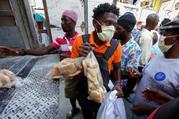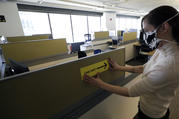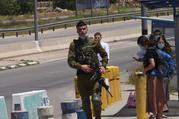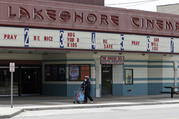Loading...
Click here if you don’t see subscription options
Click here if you don’t see subscription options

Politics & SocietyNews
More than 100 organizations--including Catholic religious congregations-- which advocate for debt relief have publicized a letter to the International Monetary Fund calling on international policymakers to cancel debt payments for poor and developing nations so that they use focus their resources on dealing with the pandemic.

Politics & SocietyShort Take
After the 9/11 attacks, the United States threw out international law and established a surveillance society, writes Margot Patterson. Covid-19 calls for a less heavy-handed approach, but will we realize that?

FaithNews
The poll found Republicans are more likely than Democrats to say prohibiting in-person services during the coronavirus outbreak violates religious freedom, 49% to 21%.

Politics & SocietyNews
Catholic leaders in the Holy Land believe that continued Israeli annexation of West Bank land could end any hope of Palestinian-Israeli rapprochement.

Politics & SocietyNews
A case about the appropriate separation between church and state is taking center stage at the Supreme Court, which is hearing arguments by telephone for a second week because of the coronavirus pandemic.

Politics & SocietyShort Take
The U.S. cannot remains so preoccupied with its own Covid-19 outbreak that it makes a bad situation worse in Latin America, writes Antonio De Loera-Brust. Our fates are too intertwined.

Politics & SocietyShort Take
The framers of the Constitution saw the Electoral College as a decision-making body, writes John D. Feerick of Fordham Law School. But the one-person, one-vote principle is better suited to modern democracy.

FaithJesuitical
A conversation with Chris White, national correspondent for Crux.

Politics & SocietyShort Take
We are facing an unprecedented global crisis, which makes it unwise to seek an abrupt return to life as usual, writes Paul D. McNelis, S.J., our contributing editor for economics.

Politics & SocietyDispatches
What is the way forward for Catholic colleges? Most Catholic institutions are doing their best to survive on their own resources while hoping for an additional stimulus package from Congress.
